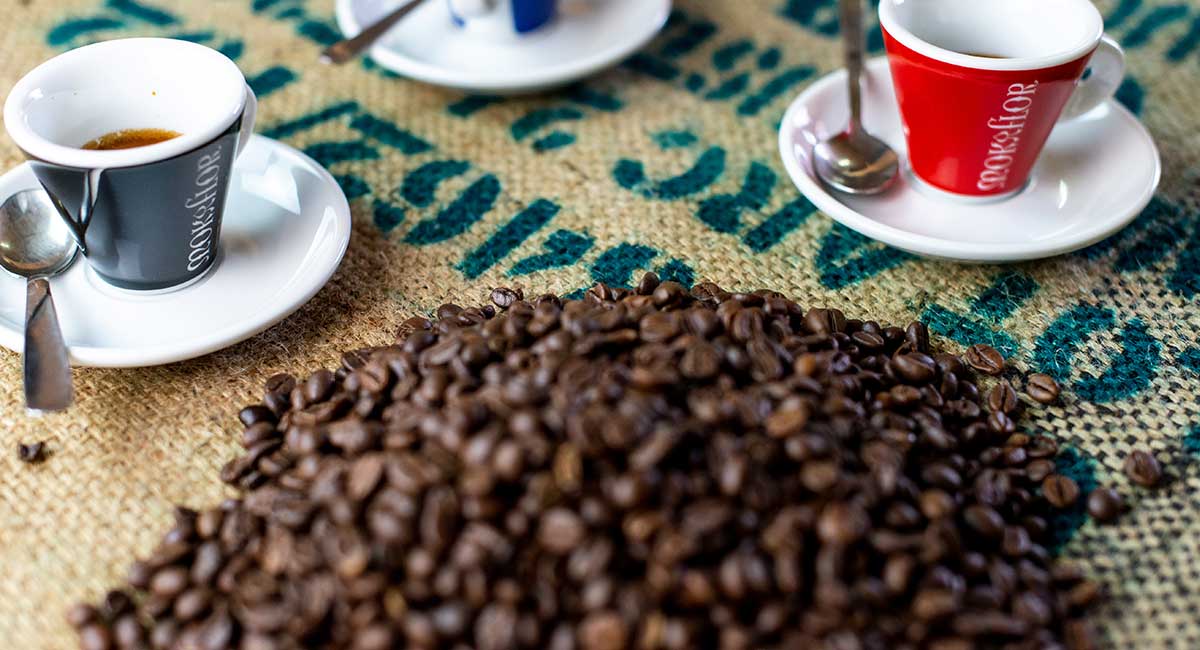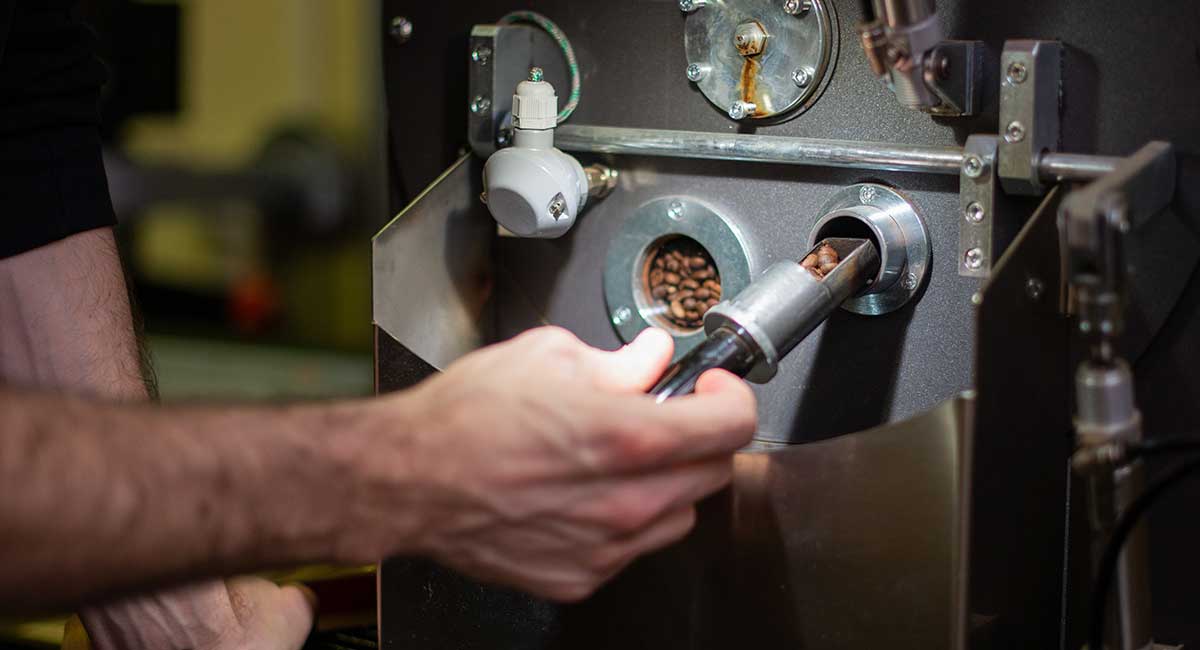
Every roaster claims to have “freshly roasted” coffee, but what does it technically really mean to have “fresh” coffee?
We asked Robert “the Roaster” Brinck (our official coffee roaster here at Caffèlab), everything there is to know about a much debated question: how fresh is “freshly roasted” coffee? How much time passes from harvesting to roasting and then to grinding? Is fresh ground coffee suitable for all types of extraction?
Robert, a great coffee expert and researcher, answers all these questions, allowing us to dispel some false myths.
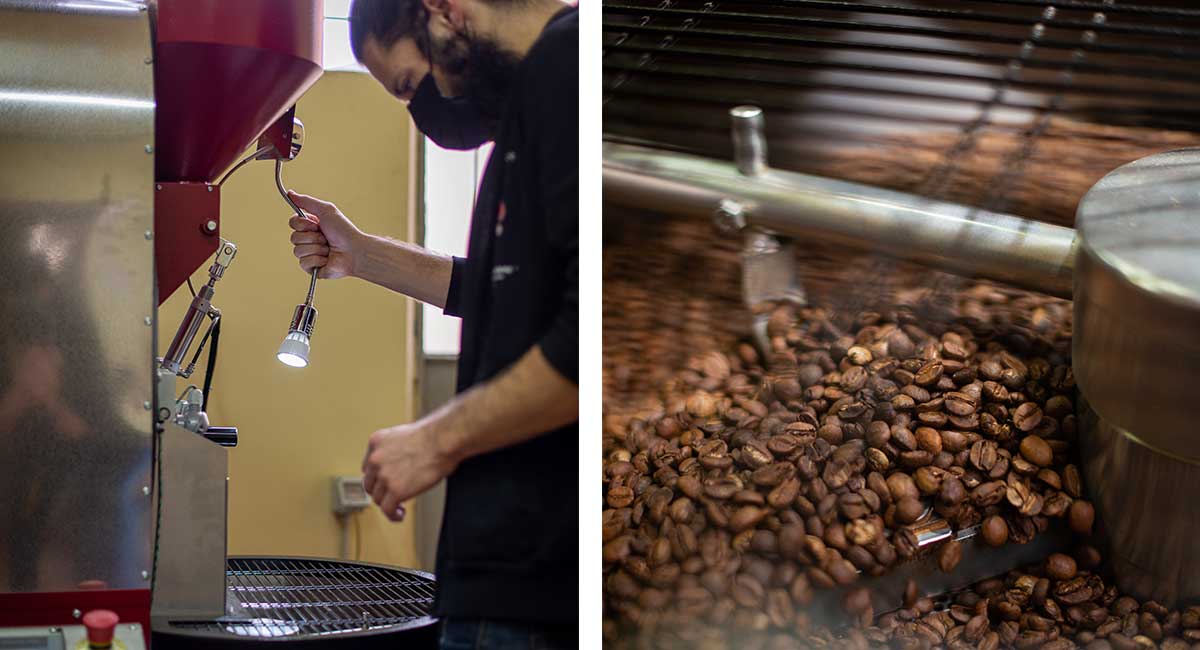
Robert, roasting is only one of the steps in the long journey of coffee. When can we truly say a coffee is freshly roasted and what are the elements that determine its freshness?
The path of coffee begins on the plantations. After cherries are harvested, they must be processed as quickly as possible to avoid unwanted fermentation. In this phase, great attention is paid to avoiding coffee being contaminated by various microorganisms: even the baskets where the cherries are placed during harvesting must be washed each time to avoid the presence of bacteria or any unwanted fermentation.
After harvesting, the processing of coffee itself begins which can be done with various methods such as the washed, natural, honey or pulped. It is also necessary to avoid any unwanted fermentations as much as possible, even if in some cases, controlled fermentations are sought to enhance some of the coffee’s aromas.
The next phase, once the coffee has been processed and brought to a humidity level of no more than 12%, is the storage in parchment of a naturally present membrane that preserves the bean itself. One to three months later will be dedicated to stabilizing the beans humidity, before the coffee is ready for transport by ship to the countries where it will then be roasted.
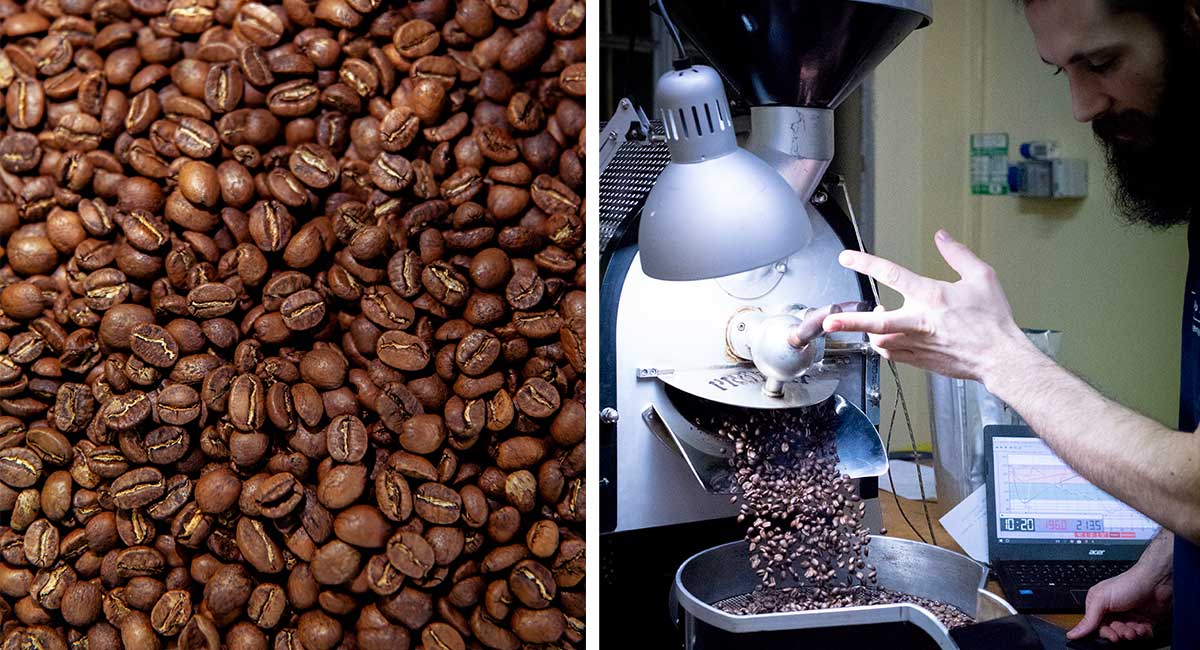
Does this mean, that the coffee which arrives at the roastery is already a few months old?
Of course. The coffee that arrives in coffee companies is always a few months old (at least 4/5) from harvesting and can sometimes reach up to three years.
This isn’t always a big issue. In fact, in the case of a coffee extracted with brewing methods for example, freshness is a great advantage and the best coffee will be the one harvested in the current year (defined as “current crop”), while a coffee that was stored longer (a “past crop”) is better for Espresso extractions.
How is the coffee transported from the plantation to the roastery?
It goes from the green coffee beans simply being placed inside jute sacks, to plastic bags called Grainpro up to vacuum packaging. In some cases (more for marketing reasons than out of an actual necessity) coffee gets shipped in wooden barrels like in the case of the Jamaica Blue Mountain. We were talking about the very popular GrainPro, a method for storage and transport that involves a jute bag outside, with another plastic bag inside that protects it from humidity and also from any unwanted aromas.
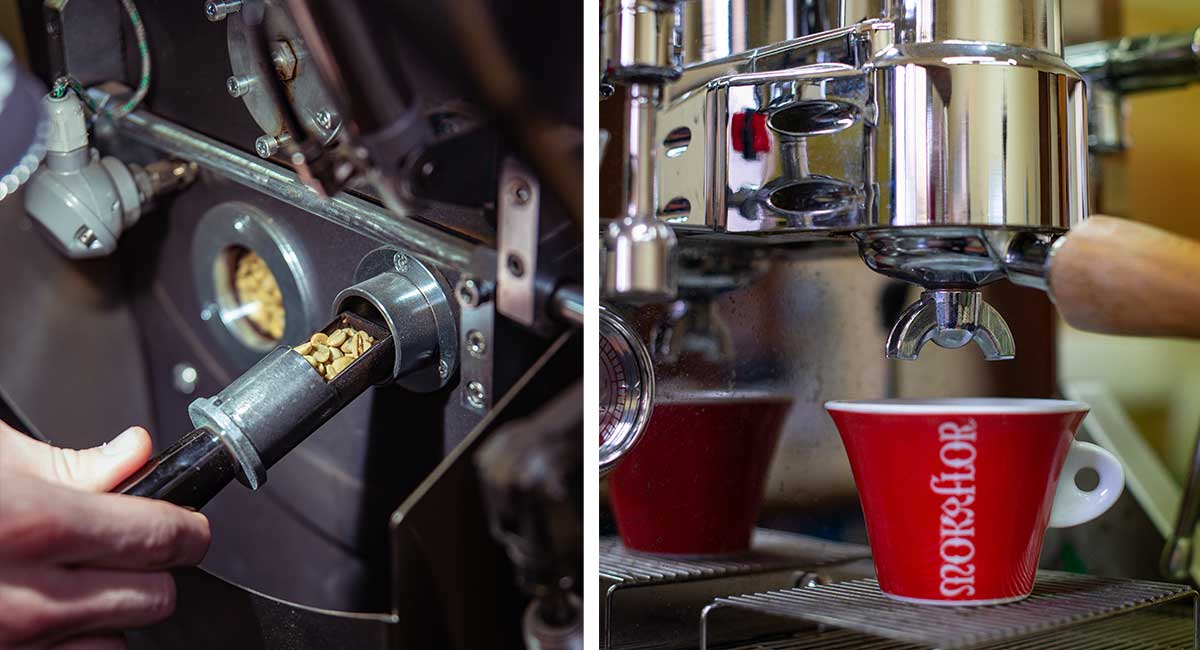
What is the work that is done at this point to ensure the freshness of the coffee?
Roasting is a naturally stressful phase for a coffee bean because huge physical and chemical changes occur within the bean. The grain becomes larger and decreases in weight due to the loss of moisture and organic parts, while developing carbon dioxide which pushes the gas towards the outside of the grain. At this point the degassing of coffee begins.
In this very important phase, the coffee is left to rest, without any contact with oxygen and part of the carbon dioxide developed during roasting is released.
In fact, if we extract an espresso made from a “freshly” roasted coffee, the result would be a cup with very herbaceous notes of vegetables, with a dense crema, but made of large bubbles that would disappear very quickly.
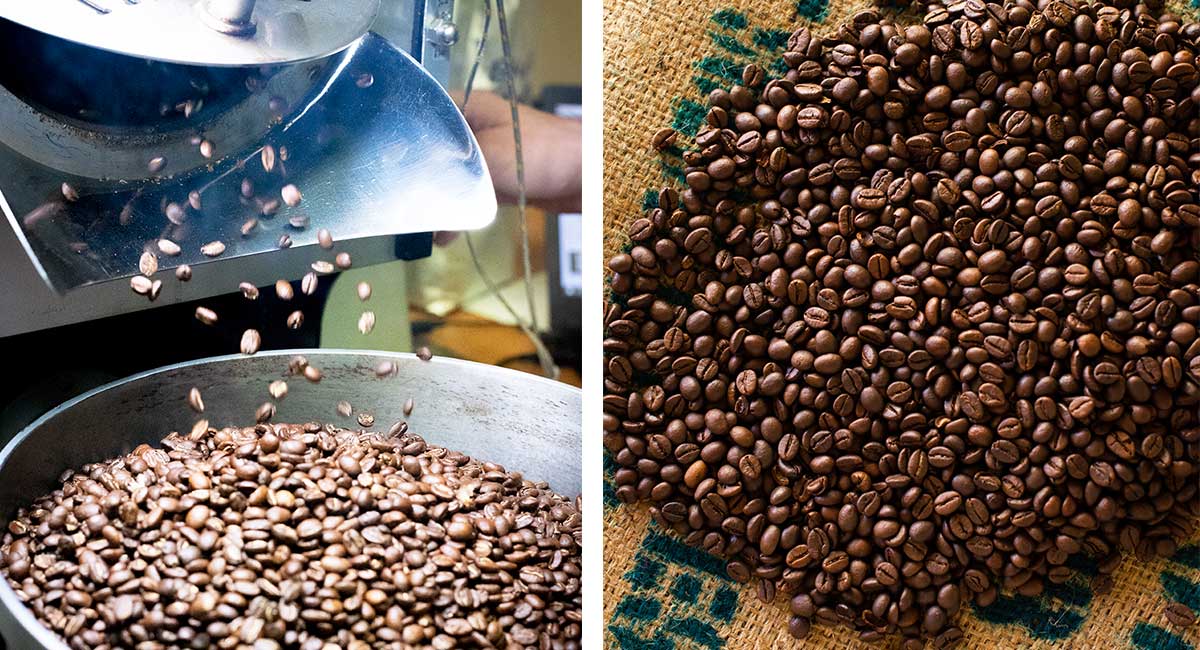
The result would be very different for a filter extracted coffee, which can already be used a few hours after roasting: in that case the degassing takes place in the first phase of extraction, as soon as the coffee grounds come into contact with water, through the so-called “blooming”.
Thanks Robert, you have certainly clarified a lot of aspects related to “fresh roasted coffee”!
